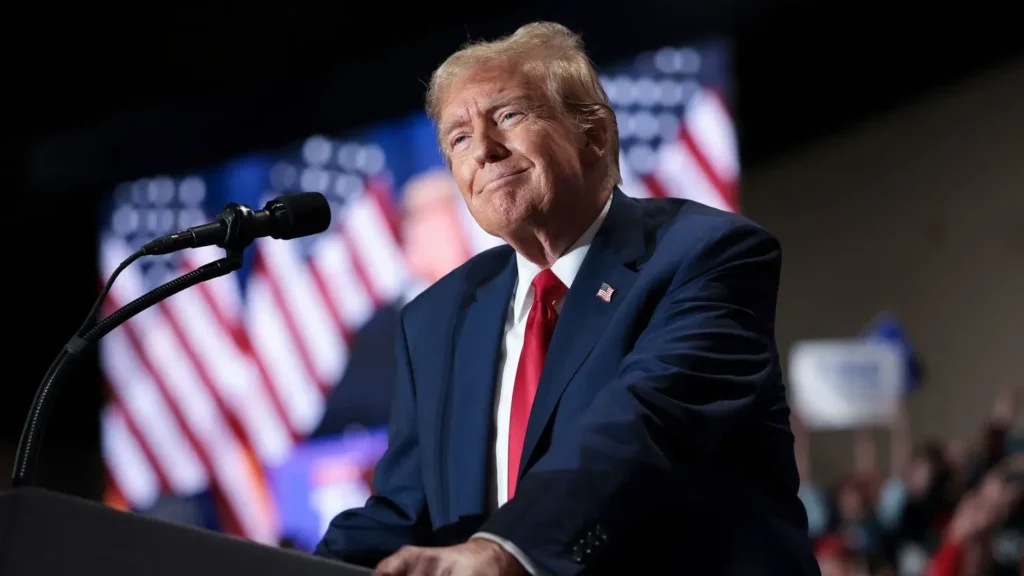As Donald Trump begins his second term as US president on January 20, he’s set to intensify his ‘America First’ approach to foreign policy and international relations. But this pragmatic, investment-centred vision isn’t entirely bad news for the African continent, analysts say.
In the current Joe Biden’s presidency, the picture looked very different. His administration’s US-Africa strategy and rhetoric emphasised cooperation and mutual interests, highlighting Africa’s independence, economic aspirations and the importance of addressing global issues such as climate change and health crises. Now, with Trump back in office, Africa will have to grapple again with an overtly transactional diplomatic approach. Finance Expert, Mr. Gabriel Idakolo, said it portends a mix bag of two options. He said Trump could extend a hand of fellowship to Nigeria, given his policies towards Nigeria in his first tenure in office. He said: “The first term of President Trump saw Nigeria securing approval for the purchase of 12 Super Tucano fighter jets which was denied by the Barack Obama administration for human rights violations by the military. The supply of the jets has been a game changer in the war theatre. “However, President Trump is not disposed to aiding African countries and also will champion harsh policies as regards migration by Africans. President Trump’s last administration did not really focus on Africa but did not hurt African countries either”. According to him, Trump’s return to office places the future of the African Growth and Opportunity Act (AGOA) in jeopardy, with the current agreement set to expire next September, say analysts. For economist, Charlie Robertson, US engagement is still pivotal even if it is always on the US’s terms. In a new multipolar world, Africa’s resources and loyalty are increasingly sought after. Meanwhile, the continent faces diverse and complex challenges, from democratic backslides to youth unemployment and migration pressures, alongside vast potential for growth led by its youth and innovation. According to him, one unique point of continuity with prior administrations may lie in Trump’s ties to Africa through family connections.
Trump’s son-in-law is Lebanese-Nigerian and remains a potent force in shaping US policy and economic engagement on the continent. Trump also previously appointed Nigerian-born private equity mogul, Adebayo Ogunlesi, to his economic advisory council before its sudden dissolution. Agricultural Economist at the Rivers State University of Science and Technology, Port Harcourt, Dr Ikechi Agbugba, said the African Growth and Opportunity Act, which has granted African countries tariff-free access to US markets since 2000, has been instrumental in boosting African exports. “While Trump did previously signal that he was thinking of ending the scheme in 2025, his desire to counter China’s growing economic influence in Africa means he is likely to want to continue the tried and tested partnership.” He added: “In Trump’s previous term, his main flagship programme for the continent was the ‘Prosper Africa’ initiative, which launched in 2018 and aimed to help US companies wanting to invest in projects in African countries. “His second biggest initiative was the Development Finance Corporation-funded development projects in Africa. Biden not only kept both running but actually invested more in them. Trump is likely to ramp them up further – offering Africa more direct economic partnership options and deepening trade and infrastructure ties.”
An Abuja based Economist, Dr.Aliyu Ilias, said Trump’s emergence would impact Nigeria economy noting, Nigeria and US have a lot to do together. “I think Trump’s emergence will have a lot of impact on the Nigeria economy. We agree there are lots of things we have to do with the US. Number one is trade policy and second is direct investment. When we talk about direct investment, a lot of investment is coming to Nigeria from America and you can recall a lot this year alone. We do trade with China more than America. Trump might not want that. He might try to shoot down FDIs. Number three is the oil market. America as a country is not part of OPEC but the US is also an oil producer. They may change their policy that may affect oil exploration and exportation”, he said. For the Founder & CEO, Gatefield, Adewunmi Emoruwa, Africa’s role within a multipolar world continues to evolve but Africa’s relationship with the US under Trump may offer a more straightforward, interestbased engagement focused on infrastructure, trade, and business opportunities.















